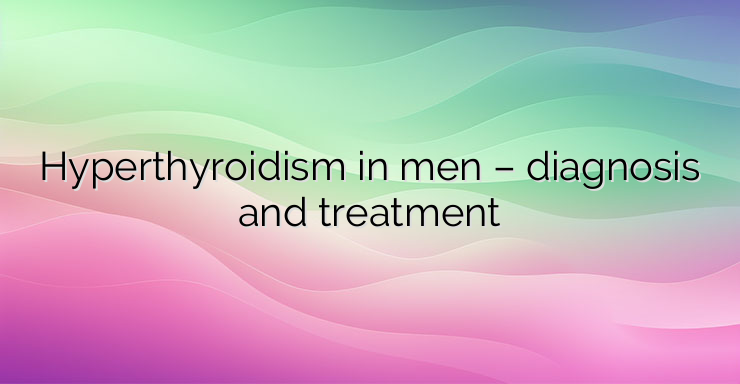Diagnosing Hyperthyroidism in Men Women may be more likely to develop hyperthyroidism, but that doesn’t mean men shouldn’t also be screened, especially if there are risk factors for developing the condition. An examination for hyperthyroidism should be carried out when the characteristic symptoms are noticed, as well as in the presence of a family history of disease (which is observed in the patient’s family) of the thyroid gland or the patient is over 60 years old. Also, the patient may be at higher risk if they have type 2 diabetes, in which case they should consider screening for thyroid disease. The workup for hyperthyroidism begins with taking an anamnesis (medical history) and a physical examination of the patient. The doctor can check if the patient has tremors (shaking) and changes in the eyes or skin. Also, the doctor can check if the patient has overactive reflexes. All of these can be signs of an overactive thyroid. In addition to a physical exam, screening for hyperthyroidism should include testing for thyroid-stimulating hormone (TSH) and thyroxine, the main hormone secreted by the thyroid gland. Imaging studies of the thyroid gland can also be helpful in diagnosing hyperthyroidism. Thyroid disorders are a widely undiagnosed and untreated health problem. About 60% of people with some form of thyroid disease are unaware of the condition. Treatment of hyperthyroidism in men Hyperthyroidism can be more difficult to treat than hypothyroidism, which can usually be managed by taking synthetic thyroid hormone. Treatment options for an overactive thyroid gland include: Antithyroid drugs, which cause the thyroid gland to produce less hormone. Surgery to remove all or part of the thyroid gland, resulting in the need to take a synthetic hormone. Radioiodine therapy, which involves taking radioactive iodine-131 orally. Iodine slowly kills some of the thyroid hormone-making cells in order to bring hormone production within normal, healthy limits. This is a widely used therapy that may sometimes require more than one treatment. In addition to controlling symptoms related to heart rate, weight, low energy, and other consequences of an overactive thyroid, treating hyperthyroidism can also help treat sexual dysfunction issues. Bibliography: National Institute of Diabetes and Digestive and Kidney Diseases. Hyperthyroidism. Healthline. Hyperthyroidism in Men: What You Need to Know


Leave a Reply